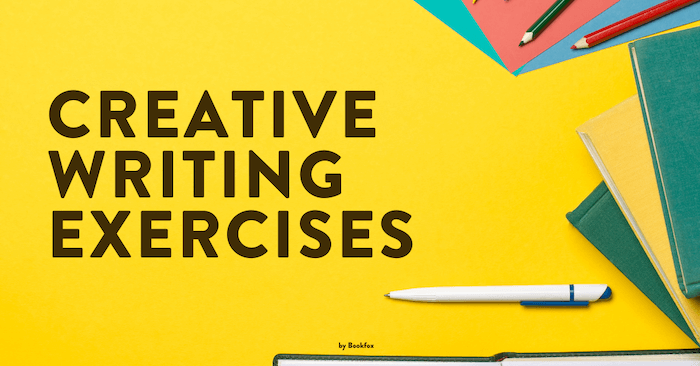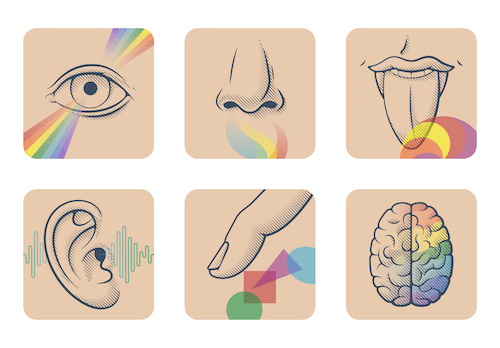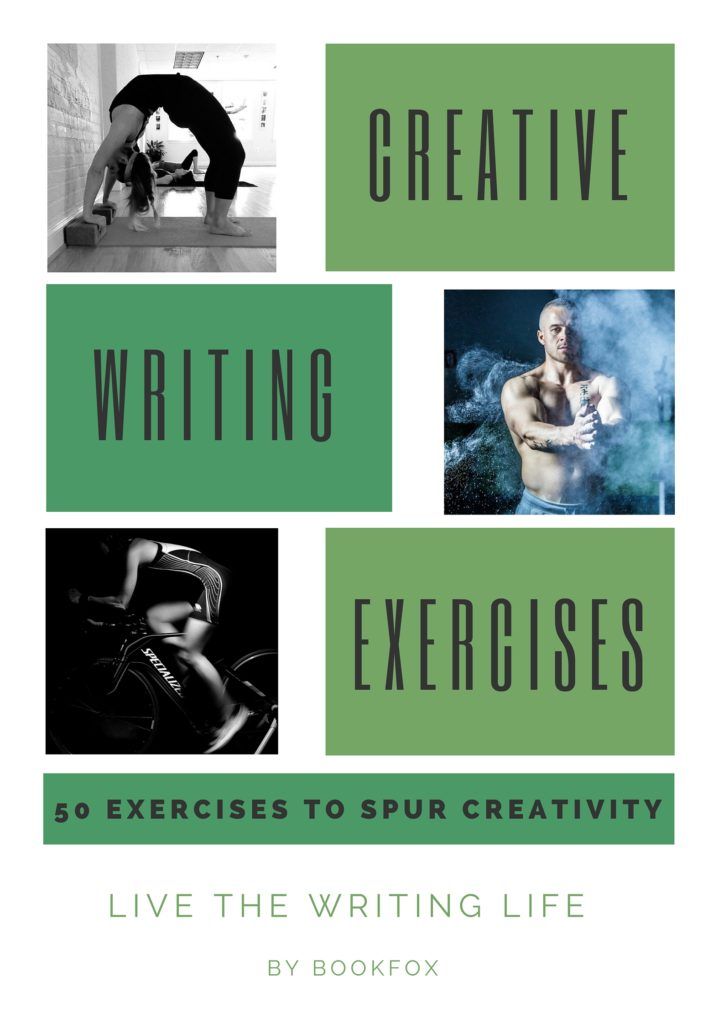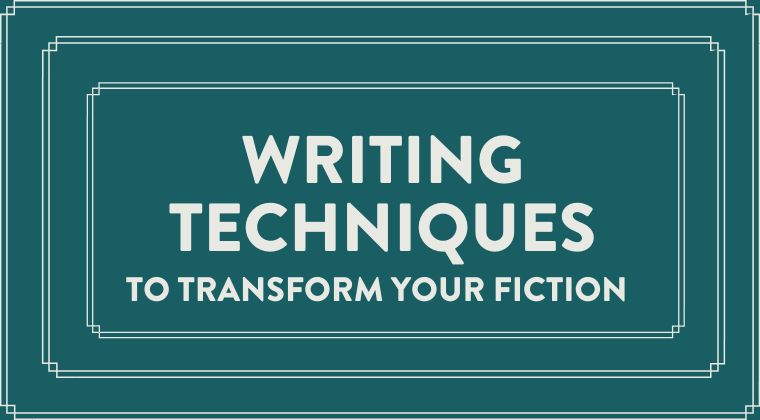 How are creative writing exercises different than writing prompts or story generators?
How are creative writing exercises different than writing prompts or story generators?
Good question.
Creative writing exercises are designed to teach a technique. They are highly specific, more specific than creative writing prompts, and much more specific than story generators.
Creative writing exercises for adults are not designed to lead the writer into crafting a full story, but are only designed to help them improve as a writer in a narrow, specific category of writing skills.
I’ve broken the exercises below into categories so you can choose what category of skill you’d like to practice. Can you guess which category in this list has the most prompts?
- Senses
- Dialogue
- Objects
- Emotions
- Characters
If you guessed characters, then you’re right. I think characters are the heart blood of every story, and that a majority of any writing prompts or writing exercises should focus on them.
But I also think any of these will help you create a narrative, and a plot, and help you generate all kinds of dialogue, whether for short stories or for novels. These writing exercises are pretty much guaranteed to improve your writing and eliminate writer’s block.
Also, if you’re a fledgling writer who needs help writing their novel, check out my comprehensive guide to novel writing.
Enjoy the five categories of writing exercises below, and happy writing!
Senses:

1. Think of the most deafening sound you can imagine. Describe it in great detail, and have your character hear it for the first time at the start of a story.
2. Have a man cooking for a woman on a third date, and have her describe the aromas in such loving and extended detail that she realizes that she’s in love with him.
3. Pick a line from one of your favorite songs, and identify the main emotion. Now write a character who is feeling that emotion and hears the song. Try to describe the type of music in such a beautiful way that you will make the reader yearn to hear the song as well.
4. Have a character dine at a blind restaurant, a restaurant in pitch blackness where all the servers are blind, and describe for a full paragraph how the tablecloth, their clothing, and the hand of their dining partner feels different in the darkness.
5. Select a dish representative of a national cuisine, and have a character describe it in such detail that the reader salivates and the personality of the character is revealed.
Dialogue:
 6. Write a story entirely in dialogue, having one side of the conversation unspoken [redacted]. Make sure the reader can guess at what the redacted parts are by what the other character says.
6. Write a story entirely in dialogue, having one side of the conversation unspoken [redacted]. Make sure the reader can guess at what the redacted parts are by what the other character says.
7. Describe two characters having a wordless conversation, communicating only through gestures. Try to see how long you can keep the conversation going without any words spoken, but end it with one of them saying a single word, and the other one repeating the same word.
8. In a public place from the last vacation you took, have two characters arguing, but make it clear by the end of the argument that they’re not arguing about what they’re really upset about.
9. Write a scene composed mostly of dialogue with a child talking to a stranger. Your mission is to show the child as heartbreakingly cute. At the same time, avoid sentimentality.
10. Have two character have a conversation with only a single word, creating emphasis and context so that the word communicates different things each time it is spoken. The prime example of this is in the television show “The Wire,” where Jimmy and Bunk investigate a crime scene repeating only a single expletive.
Objects:

11. Pick an object that is ugly, and create a character who finds it very beautiful. Have the character describe the object in a way that convinces the reader of its beauty. Now write a second version where you convince the reader (through describing the object alone) that the character is mentally unstable.
12. Write down five emotions on slips of paper and slip them into a hat. Now go outside and find a tree. Draw one emotion from the hat, and try to describe that tree from the perspective of a character feeling that emotion. (Don’t mention the emotion in your writing — try to describe the tree so the reader could guess the emotion).
13. Describe a character’s bedroom in such a way that it tells us about a person’s greatest fears and hopes.
14. Root through your desk drawer until you find a strange object, an object that would probably not be in other people’s drawers. Have a character who is devastated to find this object, and tell the story of why this object devastates them.
15. Go to an art-based Pinterest page and find your favorite piece of art. Now imagine a living room inspired by that flavor of artwork, and show the room after a husband and wife have had the worst fight of their marriage.
16. Pick a simple object like a vase, a broom, or a light bulb, and write a scene that makes the reader cry when they see the object.
Ready to invest in your writing?
Sign up for my writing course “Writing Techniques to Transform Your Fiction.”
- Learn the secret techniques used by great authors
- Practice writing exercises that will pump up your writing skills
Learn more by clicking the image or link above.
Emotions:

17. Make a list of the top five fears in your life. Write a character who is forced to confront one of those fears.
18. Write an entire page describing the exact emotions when you learned of a happy or calamitous event in your life. Now try to condense that page into a single searing sentence.
19. Think about a time in your life when you felt shame. Now write a character in a similar situation, trying to make it even more shameful.
20. Write a paragraph with a character struggle with two conflicting emotions simultaneously. For example, a character who learns of his father’s death and feels both satisfaction and pain.
21. Write a paragraph where a character starts in one emotional register, and through a process of thought, completely evolves into a different emotion.
Characters:

22. Create a minor character based upon someone you dislike. Now have your main character encounter them and feel sympathy and empathy for them despite their faults.
23. Have a kooky character tell a story inside a pre-established form: an instruction manual, traffic update, email exchange, weather report, text message.
24. Write about a character who does something they swore they would never do.
25. Have a character who has memorized something (the names of positions in the Kama Sutra, the entire book of Revelations) recite it while doing something completely at odds with what they’re reciting. For instance, bench pressing while reciting the emperors in a Chinese dynasty.
26. Write a paragraph where a character does a simple action, like turning on a light switch, and make the reader marvel at how strange and odd it truly is.
27. Have a couple fight while playing a board game. Have the fight be about something related to the board game: fighting about money, have them play monopoly. Fighting about politics, let them play chess.
28. Write about two characters angry at each other, but have both of them pretend the problems don’t exist. Instead, have them fight passive-aggressively, through small, snide comments.
29. Describe a character walking across an expanse field or lot and describe how he walks. The reader should perfectly understand his personality simply by the way you describe his walk.
30. Write a first-person POV of a character under the influence of alcohol or drugs, and try to make the prose as woozy and tipsy as the character.
31. Describe the first time that a character realizes he is not as smart as he thought.
32. Describe an hour in the life of a character who has recently lost their ability to do what they love most (a pianist who has severe arthritis; a runner who became a quadriplegic).
33. Write an argument where a husband or wife complains of a physical ailment, but their spouse refuses to believe it’s real.
34. Write a scene where a stranger stops your main character, saying that they know them, and insisting your main character is someone they are not. Describe exactly how this case of mistaken identity makes your character feel.
35. Describe a small personality trait about a person you love, and make the reader love them, too.
36. Write a personality-revealing scene with a character inside a public restroom. Do they press a thumb against the mirror to leave a subtle mark? Do they write a plea for help on the inside of the stall door? Do they brag about the size of what they’ve just dumped off?
37. Give your character an extremely unusual response to a national tragedy like a terrorist attack or natural disaster. Maybe have them be aware their response is unusual, and try to cloak it from others, or have them be completely unaware and display it without any self-consciousness.
38. Have one of your main characters come up with an idea for a comic book, and tell a close friend about the idea. What about this idea would surprise the friend, upsetting what he thought he knew about your main character? Also, what would the main character learn about himself from the comic book idea?
39. Think of an illness someone you love has suffered from. How does your character respond when someone close to them has this illness?
40. Have your main character invent an extremely offensive idea for a book, and show their personality faults through discussing it with others.
41. Have your character write down a list considering how to respond to their stalker.
42. Write a scene where a man hits on a woman, and although the woman acts repulsed and begs her friends to get him away from her, it becomes apparent that she likes the attention.
43. Write about a 20-something confronting his parents over their disapproval of his lifestyle.
44. Have your character write a funny to-do list about the steps to get a boyfriend or girlfriend.
45. Have a risk-adverse character stuck in a hostage situation with a risk-happy character.
46. For the next week, watch strangers carefully and take notes in your phone about any peculiar gestures or body language. Combine the three most interesting ones to describe a character as she goes grocery shopping.
47. Buy a package of the pills that expand into foam animals, and put a random one in a glass of warm water. Whatever it turns out to be, have that animal surprise your main character in a scene.
48. Have your character faced with a decision witness a rare, awe-inspiring event, and describe how it helps them make their decision.
49. Imagine if your character met for the first time his or her long-lost identical twin. What personality traits would they share and which ones would have changed because of their unique experiences?
50. If a character got burned by a hot pan, what type of strange reaction would they have that would reveal what they value most?
Once you’ve taken a stab at some of these exercises, I’d recommend you use them in your actual writing.
And for instruction on that, you need a guide to writing your novel.
That link will change your life and your novel. Click it now.




35 comments
John Fox, you have some excellent resources, and I thank you. I read your comments, then scrolled down to glance at the list of 50 exercises. The FIRST one, “loud noise’ is already in my head. My Hero is going to be side swiped in my Cozy. I was side swiped on a state highway here in Virginia a couple of weeks ago and, although the damage was minor, the sound of that big SUV “glancing” off my little car was SCARY!!! I once heard a fast-moving car REAR-END is stand-still car; that sound was something I’ll never forget. So, your exercise is very timely. THANK YOU!!!
This is a great list! Thanks!
You know what would be motivating? If we could turn these in to someone and get like a grade lol
I can really see the benefit of doing these writing exercises. (Versus using prompts) The purpose is so much clearer.
Some I can imagine my response fairly easily. (Though the task of not jumping on the obvious might make it harder than I imagine at this point)
Some however I would struggle with ( number 42 for example), where I have zero sympathy for the main character’s plight.
Hhhmmmm. But maybe they are the very ones I should be tackling – to see if I can develop them in a way that explains their behaviour and so creates sympathy.
Thank you. Much food for thought.
I’ve been thinking a lot about “how to master writing,” and this is the first time that I found an article that makes it clear the difference between prompts and exercises. I fully agree with you. These are bound to make you a better writer if you focus on doing a variation of them daily.
An excellent list – thank you very much. I run a small writing group and we’ll be trying some.
Yes, thank you. I too run a small writing group and you got me out of a slump for tomorrow’s group!
yes,thank you . It’s good for improve your writing skills.
What a lovely list! I am working on the final draft of my very first novel, and am constantly working at improving the final product. Your exercises are just what I need to kickstart my writing day. Thank you so very much.
Thank you very much When I turned50 I received my diploma from Children’s Institute in West Redding Ct I got my inspiration from being near water however now that I am in Oregon I have had a writing block thanks to your list my creative juices are flowing
I suppose I better have good punctuation, seeing this is about Writing.
Thank you for this great list. I am the Chair of our small Writing group in Otorohanga and we start again last week of Feb.
I have sent out a homework email, to write a A4 page of something exciting that has happened over the holiday break and they must read it out to the group with passion and excitement in their voices.
That will get them out of their comfort zone!
A formidable yet inspiring list. Thank you very much for this. This is really very helpful. I am from India, and very new to writing and have started my first project, which I want to make it into a Novel. This has been very helpful and is very challenging too. Prompts look sissy when compared to this, frankly speaking. Thank you very much again.
Where can I get the answers for these?
There aren’t “answers.” You create responses to these exercises.
Thank you so much for the detailed suggestions focusing on HOW to put the WHAT into practice; really helpful & inspiring.
Just started rough drafting a story I’ve always wanted to write. Do you have any advice for someone writing their first real story? I’m having trouble starting it; I just want it to be perfect.
I consider this very helpful. Just started my journey as a creative writer, and will be coming back to this page to aid my daily writing goal.
Kudos!
I have always loved writing exercises and these are perfect practice for my competition. I have tried lots of different things that other websites have told me to try, but this by far is the most descriptive and helpful site that i have seen so far.
This is really a creative blog. An expert writer is an amateur who didn’t stop. I trust myself that a decent writer doesn’t actually should be advised anything but to keep at it. Keep it up!
I’ve always enjoyed writing from a little girl. Since I’ve been taking it a bit more seriously as does everybody else it seems; I’ve lost the fun and sponteneity. Until now…..this is a marvelous blog to get back the basic joy and freedom in writing. Or should that be of?:) These exercises are perfect to get the creative juices flowing again…..thank you:)
These are interesting exercises for writing.
These are fantastic! I started reading a really awesome book on creative writing but it just didn’t get any good or easy to follow exercises. So I found your site and having been having a lot of fun with these. Exactly what I was looking for, thank you!
creative and inspiring, thank you
I always wanted to have an exercise where a friend and I each wrote a random sentence and sent it to each other to write a short story from that beginning sentence, then exchange the stories for reading and/or critique. Maybe both writers start with the same sentence and see how different the stories turn out.
Thanks for these exercises. Some are really challenging. To truly tackle them I’m having to spend as long beforehand thinking “how the HECK am I going to do this?” as I do with ink on paper.
Would be a great resource if other authors submitted their replies and thoughts about how they went about each exercise.
Start the conversation: submit one of yours.
I think I can use these to inspire my students.
Hi there. Thank you for posting this list- it’s great! Can I ask you to consider removing number 42 or perhaps changing it somewhat? I teach sex ed and every year am shocked by how many young people don’t understand issues around consent. Stories about woman who ‘say no but really mean yes’ are deeply unhelpful. Really appreciate your post but felt I had to ask. Thanks.
What’s wrong with the number 42?
It promulgates the belief that when a woman says no, she doesn’t mean it, potentially resulting in sexual assault.
I just make this list a part of my teaching in Creative Writing Classes. Very good list of ideas!
Thank you so much for posting this! I have used it to create a creative playwriting activity for my high school creative writing class–so much good stuff here for me to pick through and select for my kiddos that will allow them to shine and improve their knowledge of writing as a craft!
These exercises are amazing! Thank you so much for sharing 🙂
Such an insightful and well-organized guide! I love how each exercise focuses on specific writing skills — it’s incredibly helpful for improving technique and creativity. The variety and clarity make this a must-read for every aspiring writer!